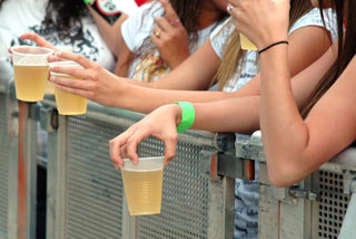As your body develops, so does your mind. As you get older, you are able to make more complicated decisions for yourself.
Some of your decisions will be medical, but others will be about school or lifestyle choices such as:
To help you manage this time in your life, it is important to ask questions and be as informed as possible!
Smoking
There are lots of reasons why smoking is bad news, especially if you have a transplant.
- Cigarettes are a direct assault on your lungs –not good whether you received your lungs in a transplant or were born with them.
- Smoking also narrows your blood vessels, making it harder for blood to travel around your body. You need healthy blood vessels and a steady blood supply to keep you healthy with your transplant organ.
- Smoking makes your bones less dense. When this happens, your bones get weaker and you are at a higher risk for osteoporosis. You may already be at higher risk if you are taking prednisone or don’t have enough vitamin D in your body.
- There is a link between cigarette smoking and poor healing – it will take you longer to recover from your transplant surgery if you were a smoker going into it.
- Even without a transplant, smokers tend to have more colds, flu, bronchitis and pneumonia than non-smokers. Add in immunosuppressant medications and infections will be even worse.
- You won’t look or smell great in the long term if you smoke. Ok, so bad breath, yellow teeth and prematurely wrinkled skin won’t affect the success of your transplant. But do you really want to smoke and have those things happen?
Marijuana
Marijuana is almost always contaminated with fungus or fungal spores. There is no way to screen for these. The spores are inhaled while you smoke and can spread around your body.
Fungal spores do not cause problems in healthy people, but they can make you very sick if you are on high doses of anti-rejection medicines. There is even a report in a journal about someone who died from a fungal infection in his lungs, which he got from smoking marijuana soon after his transplant.
Staying smoke-free
The best way to avoid the problems caused by cigarette smoking is not to start smoking in the first place. It may be difficult to do this if others around you smoke and you are offered cigarettes.
If you find yourself in this situation, have your reason for not smoking ready, such as “I just don’t like it,” “I’ve had a transplant and I’m not allowed to,” “I’m training for the Transplant Games,” or “No thanks, not right now.”
You can get a lot of support if you smoke and would like to quit. Information is available from organizations such as the Canadian Cancer Society. You can also speak to your doctor.
Some people decide to give up smoking all at once, while others find it easier to stop gradually. Some even prefer to join a support group for young people who would like to quit.
Quitting smoking can be difficult at first, but stick with it! Staying smoke-free can prolong the life of your new organ, help bring back more energy and give you a longer life.

Recreational drugs
The term “drug” refers to:
- prescribed medications (you’re probably on lots of those)
- medications you buy without a prescription at the pharmacy (over-the-counter, or OTC, drugs)
- natural or herbal medicines
- drugs that alter your state of mind (often called “recreational” or “street” drugs).
Young people may use recreational drugs for a number of reasons. They may be curious and want to try them out. They may feel that they have been left out of a lot of teenage stuff because of their transplant and want to be "catch up" with everyone else. They may be feeling anxious or depressed and take drugs to feel better.
- In many places, alcohol is the most common recreational drug, followed by tobacco and marijuana. Other drugs you will have heard about include heroin, cocaine and amphetamines such as speed and ecstasy.
- Prescription or over-the-counter drugs can also be misused. Sometimes people sell their prescription drugs such as pain killers or ADHD medicine.
- Anabolic steroids are misused to enhance sports performance.
You could suffer serious side effects if you take any drugs that have not been prescribed to you.
Knowing the risks of using recreational drugs when you have a transplant
Recreational drugs are risky for everyone, but transplant patients are even more at risk.
- Taking recreational drugs, especially while you are on immunosuppressant medications, could damage your organ.
- Any drug that you take with a syringe can introduce bacteria, viruses and fungi into your blood. Because your immune system is weak after your transplant, this is more likely to lead to a serious infection.
- If you are high or stoned, you are more likely to forget to take your medications. Recreational drugs are not recommended, but if you do plan on using drugs, take your medications before you go out.
- If you are high or stoned, you are less able to use your judgment and keep yourself safe. For instance, you are more likely to be targeted by someone looking for a victim, have unprotected sex, ride in a car with a drunk driver or do something else that is risky and may lead to serious injury or death.
- There is no quality control for recreational drugs. You may think you are taking one thing, but you could actually be taking something else or a mix of drugs.
- Most drugs are illegal and can lead to trouble with the law.
- A drug overdose can cause serious mental or physical damage, even death.
- If someone thinks their prescription drug will work for you, talk to your transplant team about it before you take it. If the prescription is a good medication for you, your transplant team can then prescribe it for you.

Alcohol
You may think that drinking is a good way to relax with friends, but alcohol and transplants never mix well, especially if you have had a liver transplant.
- Alcohol can damage your liver - in fact, some adults need liver transplants because of drinking alcohol, even if their liver was healthy before.
- Alcohol is a diuretic (it makes you pee). If you don’t drink enough water to replace the extra water you lose, you can get dehydrated. This is one of the causes of a hangover. If you are going to drink, have a full glass of water for every alcoholic drink you have, on top of your recommended daily fluid intake.
- Alcohol can interfere with some medications. When taken with some antibiotics, alcohol can cause some very unpleasant side effects such as a hot, flushed feeling, dizziness, nausea and vomiting.
- Alcohol can stop your body from processing your medications properly.
- Alcohol can cause you to forget to take your medications or make poor decisions that could affect your health and safety.
- Drinking large amounts of alcohol in a short time can lead to alcohol poisoning. Vomiting is usually the first symptom, but extreme sleepiness, unconsciousness, difficulty breathing, low blood sugar levels, seizures and even death can also occur in extreme cases.
Reducing the risks if you drink
It’s best to wait until you are 19 or over to drink. In fact, drinking before age 19 is illegal in most of Canada. If you decide to drink anyway, here are some suggestions for staying safe.
- Decide ahead of time if you are going to drink when you go out and put a safety plan in place, for example by making sure you have a ride home.
- Buddy up with a friend. Drugs like GHB (a date rape drug) can be slipped into a drink while you are not watching. This leaves you open to sexual assault or robbery because you are less able to spot the signs of a dangerous situation and escape from it. Watch out for your friends and have them watch out for you.
- Make a plan to take your medicine before you go out.
- Assign yourself a drink limit and stick to it. If you do this, you will keep track of what you drink and are less likely to go overboard.
- Drink a glass of water after each alcoholic drink.
- Don’t drink coolers — it’s just too easy to overdo them.






